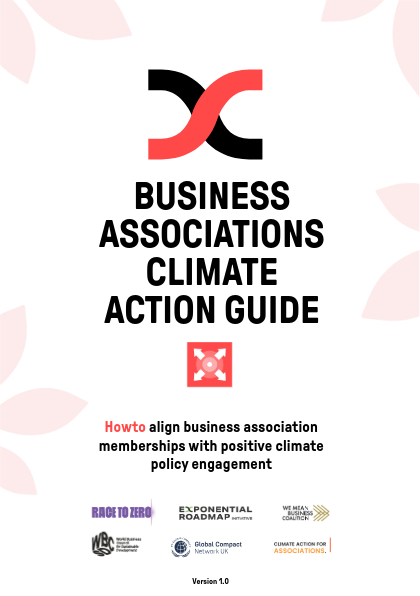About the guide
Many businesses have made ambitious climate commitments to transition to a net zero, resilient and nature-positive future.
But while many businesses undertake direct climate policy engagement/advocacy, companies also indirectly support policy positions and activities by being members of business associations. Business associations are highly influential actors in the policymaking landscape, and can play a key role in helping to drive an agenda that protects climate and nature.
It is therefore essential that companies do their best to ensure that the business associations they are members of support policy agendas that will help them deliver on their climate transition plans.
This guide offers business leaders, sustainability professionals, board members and employees a simple, step-wise approach to doing that.
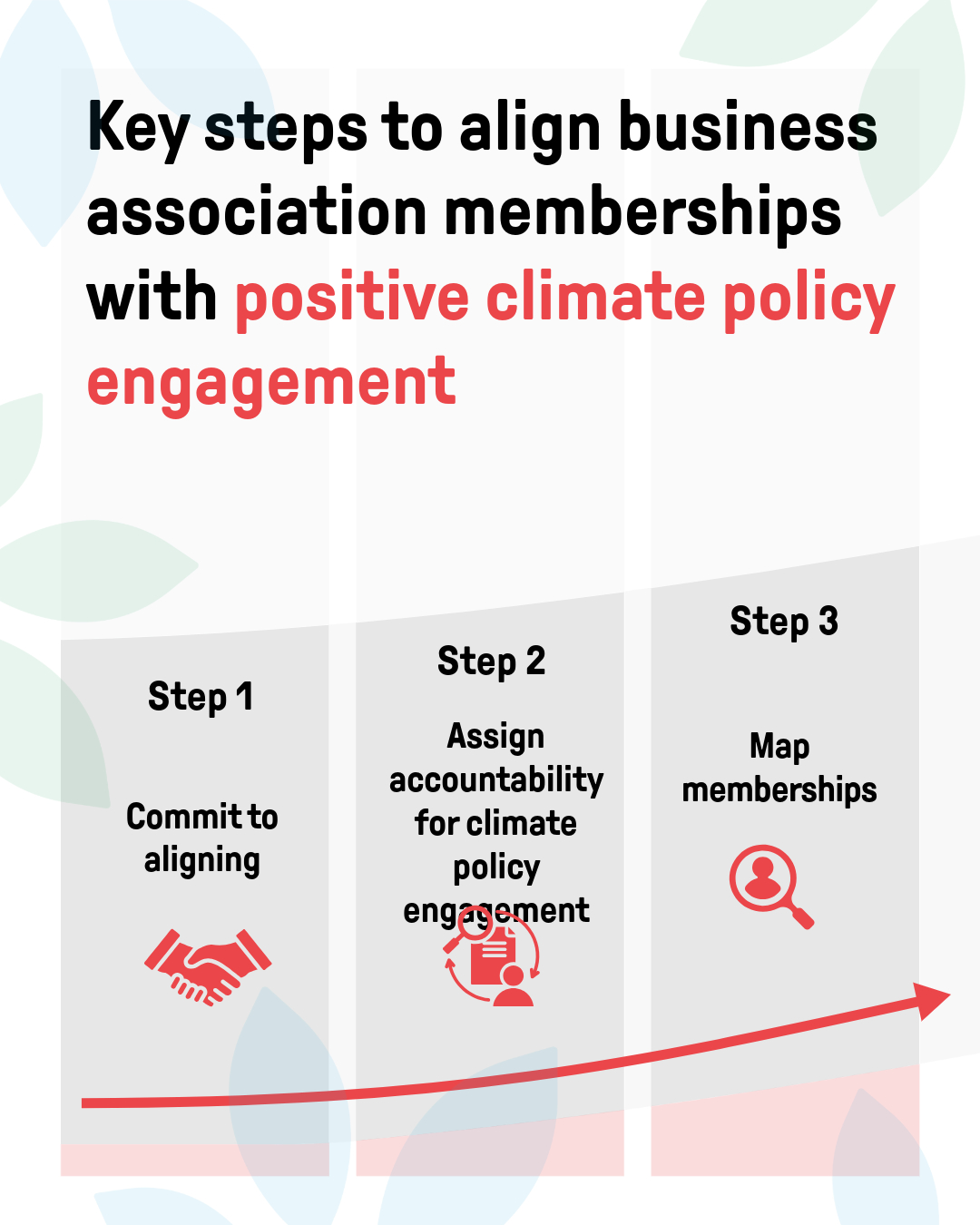
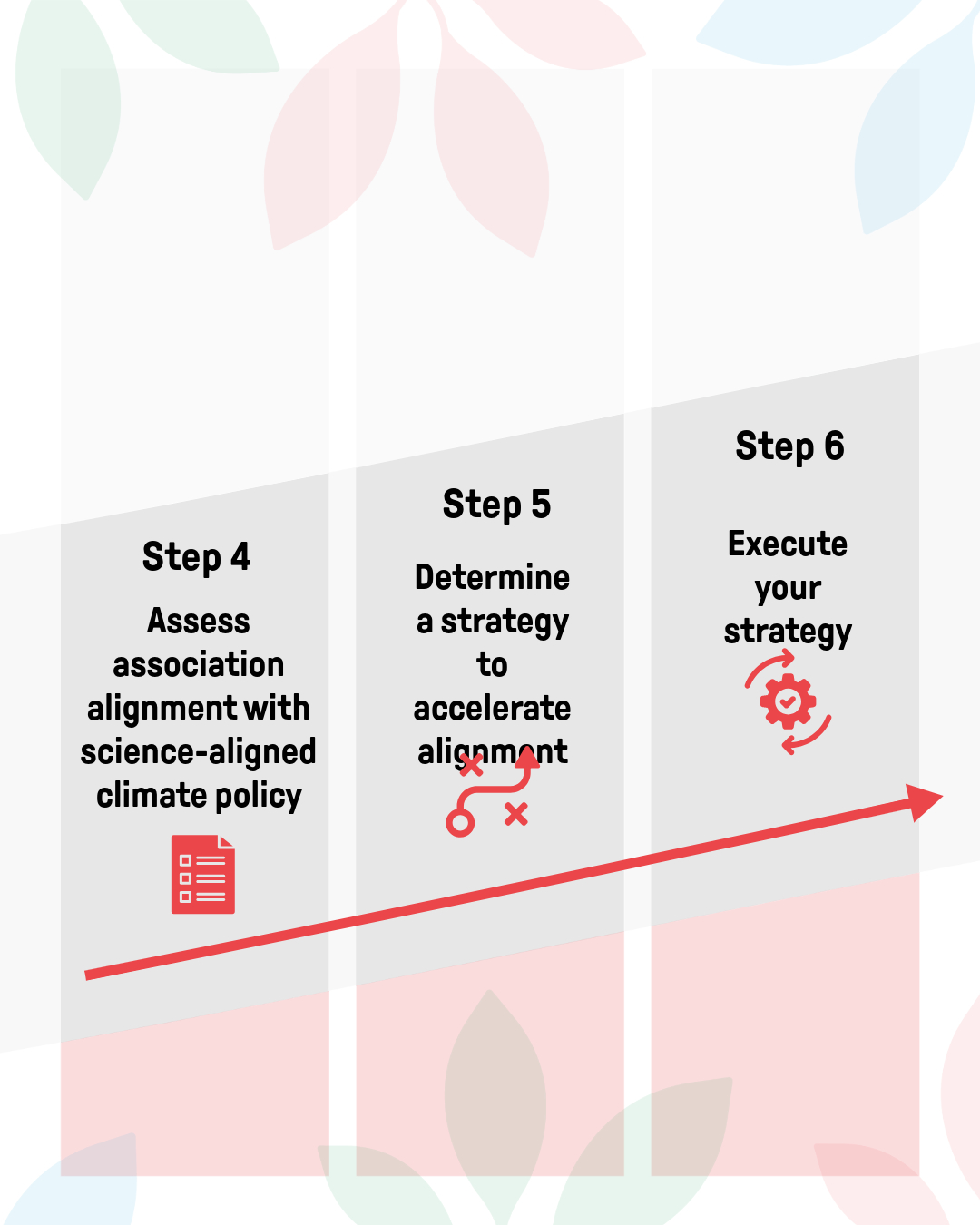
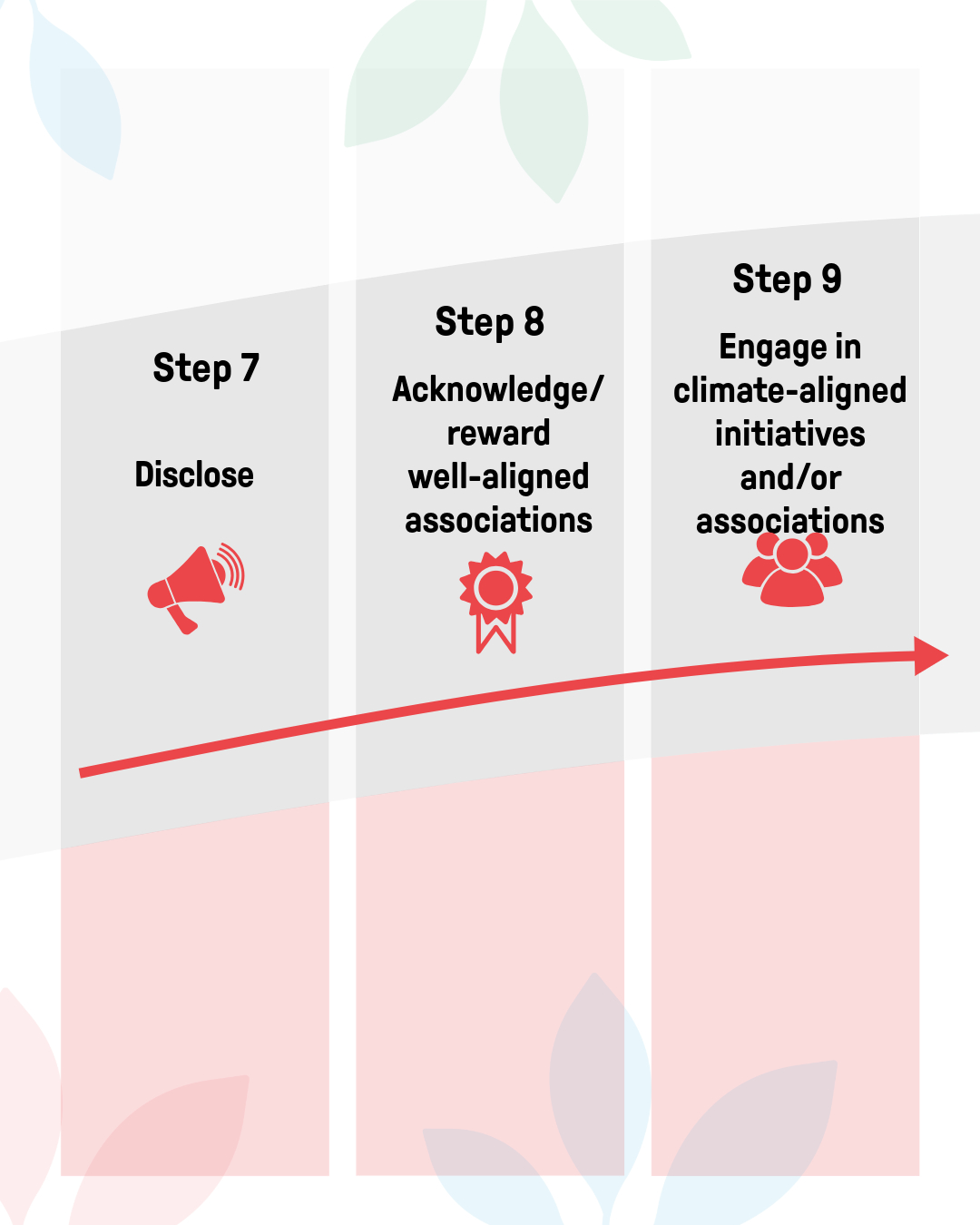
This guide is co-authored by the Exponential Roadmap Initiative and Race to Zero. It is backed by leading organisations including World Business Council for Sustainable Development (WBCSD), We Mean Business Coalition, UN Global Compact Network UK and Climate Action for Associations (CAFA) and developed with expertise from Volans and InfluenceMap.
Actioning the 1.5 °C Business Playbook
The 1.5°C Business Playbook sets out a four-pillar climate strategy focusing on four pillars that need to be addressed in a company’s climate strategy to align with the 1.5 °C ambition.
Pillar 4 focuses on a company’s activities to accelerate climate action in society.
One such activity is to ensure that trade and business associations that a company is a member of are working in alignment with the 1.5°C ambition. The Business Associations Climate Action Guide lays out how to do that.
Guides for actions under pillar 2 include the Supplier Action Guide, the Transportation Action Guide and the Greening Cash Action Guide.
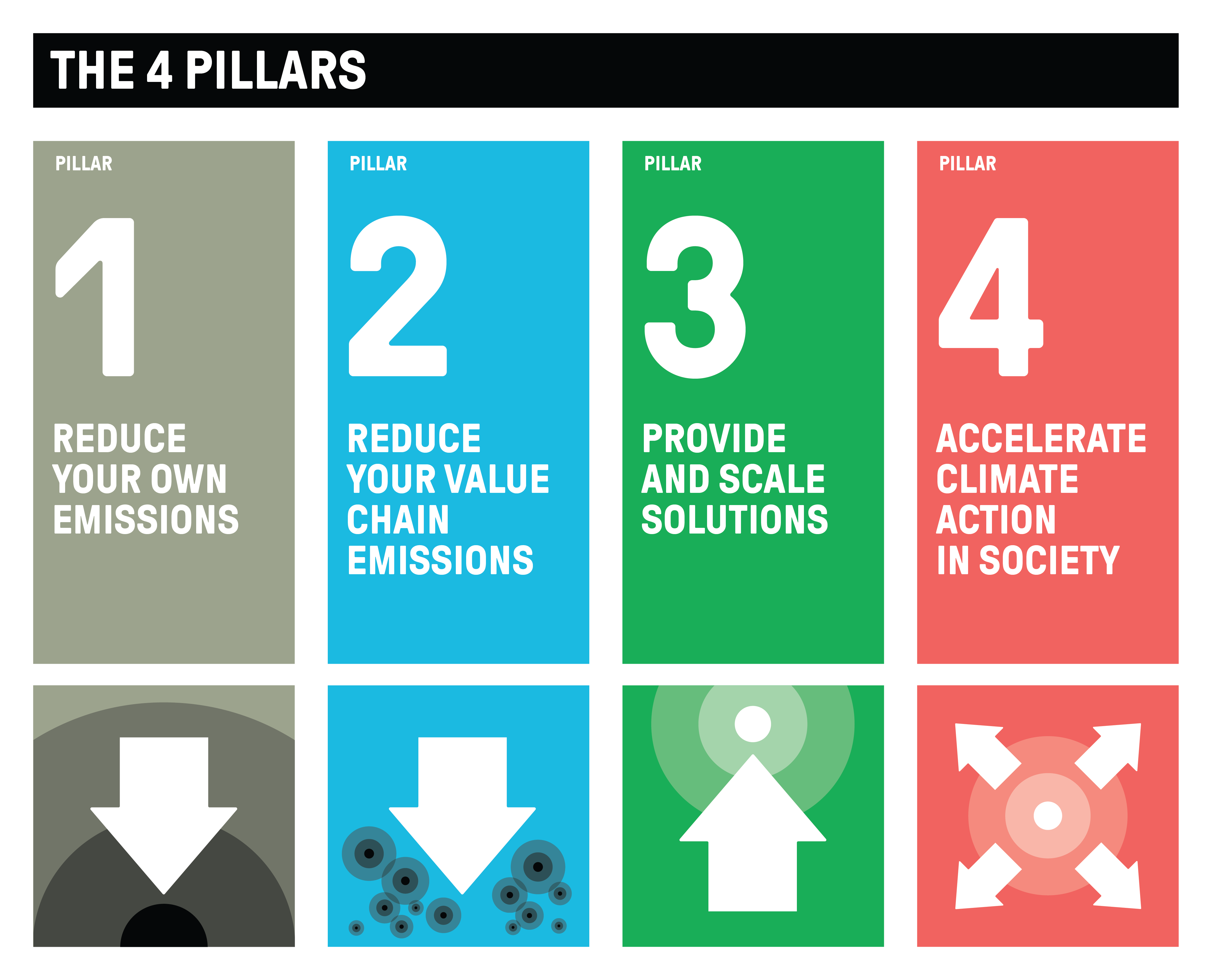
The Business Associations Climate Action Guide in quotes
Check out the guide
Find out about the key steps to take to ensure that the business associations your company is a member of work in alignment with science-aligned climate policy.

